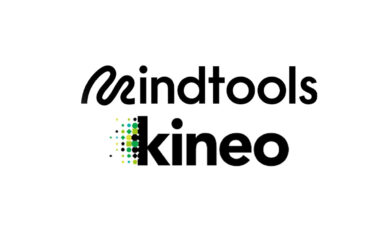These days, there’s change everywhere you look, from new technology in the office to new ways of communicating with friends. It’s great when this change is easy to keep up with. But sometimes new systems and approaches can cause anxiety. Will other people “get with the program” more quickly than we do? What does that mean for our place in the world – and our place at work?
Mid-career professionals, in particular, might wish for a fully functioning crystal ball with which to see the future, so they can plan for change and avoid being left behind.
“Stretch: How to Future-Proof Yourself For Tomorrow’s Workplace” is a kind of crystal ball in text format. Written by academics Karie Willyerd and Barbara Mistick, this book presents the conclusions of their research into future workplace trends and offers some helpful tips on how to prepare for what may be coming.
“Around the world, it didn’t matter what country, and we had a pretty vibrant response from about 27 different countries, we saw a universal trend that employees were concerned that they didn’t have adequate skills to be relevant in the workplace in the future,” Mistick says in our Expert Interview podcast, as she explains what their research revealed. “They were worried that their skills were going to be obsolete and that was going to affect their career advancement.”
From their research, Mistick and Willyerd identified three “stretch imperatives” that will help people future-proof themselves for tomorrow’s workplace: it’s all on you, you need options, and you have dreams.
Their book is structured around these three ideas, offering advice in five areas of practice. The first of these is learning “on the fly.”
Mistick explains: “We realized that you ‘learn a living’ and so, in order to learn that living, you have to keep learning over time.”
The authors’ tips for informal learning range from “adopting a growth mindset or being very mindful when you’re at work” to observing trends that are going on around you. Cultivating a sense of curiosity is also important, Mistick says, as is “setting aside some time to reflect on what works for you, what is important, how to take those things that you learn and make them your own, and then knowing when to unlearn certain things over time.”
Although we all need to take responsibility for our own professional development, Mistick believes that managers can help their people learn on the fly in a few key ways. First, they need to “define the expected capabilities.”
She explains: “Any time you move somebody to a new role, just take some time… to help them both understand the organization and understand the job that you’re looking for them to do.”
And managers need to keep those communication channels open.
“If something goes really well, give some feedback about what the person did to make that successful. Maybe they took care of a client in a unique way and you want to call out what a great job they did. Or [make] sure that you have that difficult conversation about what didn’t go well, because it’s really a learning opportunity,” she says.
As individuals, we need to keep an open mind, always testing our assumptions and not jumping to conclusions. Look up and down, far and wide, Mistick advises.
“We call it ‘develop your drone abilities:’ look at [a situation] from a big picture view, at that 30,000 foot level, but then also come down and take a look at it at a micro level. You might see very different results when you look at things from those two different perspectives.”
Thinking about the future can be daunting, but in Mistick’s view, it doesn’t need to be. We can prepare ourselves by taking charge of our own career development, seizing learning opportunities and staying flexible in our approach.
In this audio clip, from our Expert Interview podcast, Mistick looks into her crystal ball and picks out the capabilities she believes will be most useful in tomorrow’s workplace.
Listen to the full Expert Interview in the Mind Tools Club ¦ Install Flash Player.
What skills do you think will matter most in the workplace of the future? Join the discussion below!




